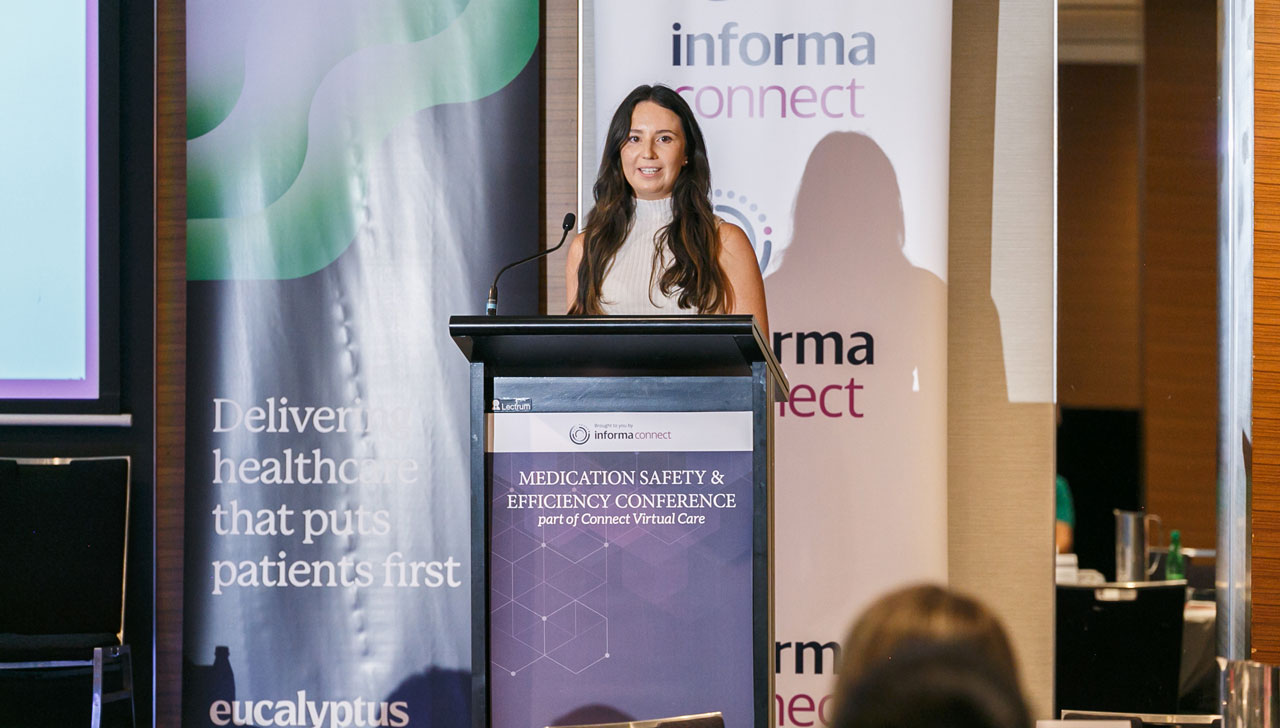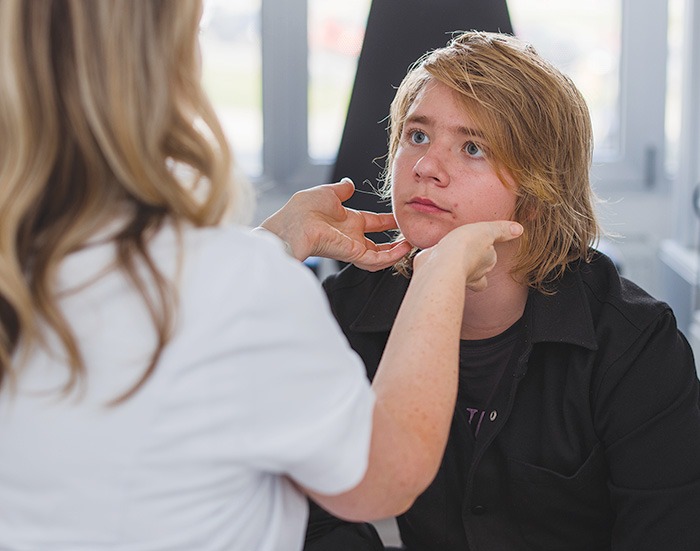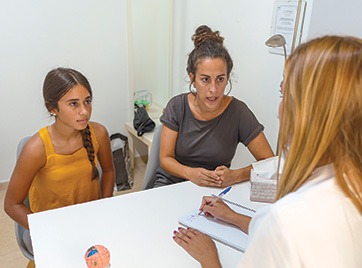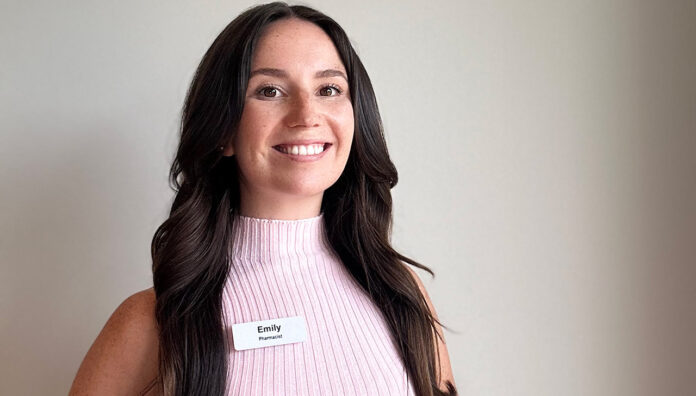On International Women’s Day (8 March), PSA Victorian Early Career Pharmacist of the Year Emily Griffin, delivered the keynote address to the Medication Safety and Efficiency Conference.
This is an edited extract of her speech. Click here for full transcript.
What an honour to be asked here today to speak about ‘Pathing the way for Future Pharmacists’ on International Women’s Day.
My pharmacy journey began halfway through year 12 when I went for work experience down the road at a community pharmacy in Bendigo, regional Victoria. I attended La Trobe Bendigo, moved for my intern role in Echuca, then moved to Melbourne where I co-built the Australian first Voluntary Assisted Dying (VAD) Statewide Pharmacy Service. I now run my own consultancy business, work in a hospital and a university.

I think saying yes to most opportunities and my ability to develop or redevelop systems and services for efficiency is what has allowed me to have so much experience and impact so early in my career, which has also allowed me to build my unique balance of pharmacist roles I love.
I’m going to share with you four valuable learnings.
1. Savour special moments. Don’t sweat the small stuff
I’ve visited patients, doctors, and health services across the entire state of Victoria. I’ve had some unbelievable experiences ranging from the immense gratitude from patients and loved ones and attending live wakes, to experiencing firsthand the hostility of people opposing the VAD legislation.
I always try to put myself in my patients’ or their loved ones’ shoes; I ask myself what my expectation of the pharmacist service would be in this situation. I believe that’s the standard everyone in healthcare should be working to.
Some of the most touching moments working in VAD have been the privilege of a patient sharing a reflection or some memories during the visit. Working in VAD also made me less patient and less tolerant to people who choose to make someone else’s precious time on this earth difficult.
2. Your workplace culture has more of an impact on you than you think
Having worked in a toxic workplace, I’m trying to be an advocate for change. Healthcare professionals deserve to be treated with the same care and compassion that we should be providing to our patients.
Finding workplace cultures that are welcoming, compassionate, and respectful which are much better aligned with my personal values and how I like to deliver patient care also has been a game changer for my career, and my happiness.
One of the worst parts of toxic workplaces is – you will probably try to defend that workplace’s culture and behaviour. You probably won’t fully realise its detrimental effects on you until you have left. Similarly, you probably won’t realise the positive effects of a positive workplace until you experience them after a horrible experience.
As pharmacists, we also have a huge impact on the next generation of pharmacists and it is our duty to model and build the positive workplace culture of tomorrow.
3. Sharing and supporting other services builds stronger communities and systems
The impact of staff shortages in rural areas is significant. A gap of two equivalent full time (EFTs) in a team may not seem like much – but in a rural pharmacy team of 8 EFTs, it’s a 25% gap. There’s more we can be doing to support, strengthen, and promote the rural and regional pharmacy workforce. Unfortunately, in my experience, it’s not really on the radar.
Our metropolitan services could participate in a pharmacist exchange program or rotate pharmacists through a rural stint. Rural community and hospital pharmacy placements should be mandated.
4. There is enough strength and success in this world for all women
This learning point is for all women and people identifying as women. I am so grateful to have worked with and currently work with some incredibly strong, successful, and supportive women.
Are you a woman supporting other women? Are you a man supporting women? There’s this horrid thing in Australia called ‘tall poppy syndrome’ and it seems especially fierce among some groups of women. I’ve experienced this with women I have worked, studied or been friends with.
I cannot say it loud enough: There is enough success for every woman. Another woman’s success will not take away from your own success.
Women in power or leadership roles’ behaviours are even more important because they trickle down to the entire workplace.
Women, I encourage you here today to question the system – why, when 64% of pharmacists are women, do the statistics of our leadership roles not also reflect this? What can you do to change this? Perhaps you could go for that role the next time it crops up?



 Pharmacists have always prescribed, but they have the potential to prescribe much more
Pharmacists have always prescribed, but they have the potential to prescribe much more



 Sponsorship information
Sponsorship information


 Talking to patients who have questions
Talking to patients who have questions







